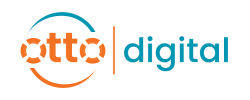Choosing the Right CRM: A Comparative Guide for Australian Businesses

The Australian business landscape continues to evolve, prompting companies to adopt robust Customer Relationship Management (CRM) systems that can meet the demands of a dynamic market. This comprehensive guide is designed to assist Australian business owners in navigating the complexities of CRM selection — with a particular focus on comparing leading solutions such asZoho CRM and Salesforce, along with other prominent platforms. Through a detailed and data-informed approach, this guide empowers you to select the right CRM tailored to your unique operational needs.
Understanding the Australian Business Context
Australia’s economy is supported by a wide range of industries — from agriculture and finance to manufacturing and technology. According to the Australian Bureau of Statistics, small businesses make up approximately 97% of all businesses, contributing significantly to national GDP. With the Australian online retail sector alone expected to surpass $26.9 billion by 2025, adopting an efficient CRM has become essential for managing customer data and enhancing engagement strategies.
Why CRM is Vital for Business Growth
A CRM system serves as the central hub for managing interactions with both current and prospective customers. It streamlines the sales process, centralises customer information, and enhances service delivery. Research by Gartner shows that businesses with a CRM in place report, on average, a 29% increase in sales — making it a crucial tool for small businesses seeking to grow and stay competitive in the fast-paced Australian marketplace.
CRM Comparison: Zoho CRM vs Salesforce
When evaluating CRM platforms,
Zoho CRM
and Salesforce often top the list. Here’s a comparative breakdown of their key features:
| Feature | Zoho CRM | Salesforce CRM |
|---|---|---|
| User Interface | Intuitive and customisable | Highly customisable but more complex |
| Pricing | Affordable, with generous inclusions | Higher base pricing; features tiered |
| Integration | Excellent with Zoho ecosystem | Extensive third-party integrations |
| Support | 24/7 support on premium plans | Support varies by pricing tier |
Your final choice should reflect your business size, budget, tech stack, and the complexity of your sales cycle.
Must-Have CRM Features for Australian SMEs
When choosing a CRM, Australian businesses should consider the following features:
- Integration Capabilities: Seamless connection with current tools (e.g., Xero, MYOB).
- Mobile Accessibility: Essential for field sales or remote teams.
- Sales Automation: Reduces manual effort and increases accuracy.
- Advanced Analytics: Provides insights into customer behaviour and sales performance.
- Scalability: Grows alongside your business, supporting future expansion.
These capabilities ensure your CRM is fit for both present operations and future scalability.
A CRM Selection Guide for Small Businesses in Australia
To find the right CRM for your business, follow these steps:
- Define Your Business Objectives: Is your priority sales growth, better customer service, or data management?
- Evaluate Vendors: Consider costs, features, integrations, and support. Review platforms like Capterra for user feedback.
- Trial & Test: Take advantage of free trials to gauge usability and system fit within your workflows.
Industry-Specific Use Cases for CRM in Australia
CRM platforms are being leveraged in diverse ways across industries:
- Retail: Drive personalised experiences and loyalty programs.
- Real Estate: Automate lead follow-ups and manage client relationships.
- Healthcare: Coordinate patient communications and schedule appointments.
Each sector benefits from CRM functionality tailored to its unique challenges and needs.

Challenges of CRM Implementation
Despite the clear benefits, CRM adoption comes with its own set of hurdles:
- Data Integration Issues: Consolidating data from various sources can be complex.
- User Adoption: Staff may resist using a new system without adequate training.
- Customisation Costs: Tailoring a CRM to suit your business may increase implementation costs.
Anticipating these challenges helps ensure smoother deployment and better adoption outcomes.
Opportunities Created by Modern CRMs
Once properly implemented, a modern CRM offers a host of advantages:
- Use predictive analytics to anticipate customer trends.
- Enable multi-channel engagement across email, phone, social, and chat.
- Improve revenue through better customer engagement and service consistency.
The Future of CRM in Australia
CRM technology in Australia is expected to continue evolving with advancements in AI, machine learning, and cloud computing. These innovations will make systems even more intuitive and personalised, empowering businesses with real-time insights, automated workflows, and remote collaboration tools that support hybrid work models.
What to Consider When Choosing a CRM
Use the following criteria to guide your decision-making process:
- Budget: Choose a platform that meets your financial capacity without compromising on essentials.
- Industry Requirements: Opt for a CRM that addresses specific operational needs.
- Automation Level: Assess how much of your sales and service processes can be automated.
- Compatibility: Make sure the CRM integrates with your current tech stack.
- Growth Plans: Ensure scalability as your business expands.
Gaining Competitive Edge Through CRM
Investing in the right CRM can unlock key competitive advantages:
- Improve customer retention and satisfaction.
- Streamline operations and reduce overheads.
- Make smarter decisions with real-time, data-backed insights.
Ultimately, the right CRM will support your broader business objectives and fuel sustainable growth.
Key Takeaways
Choosing the best CRM for your Australian business is a strategic decision. This guide’s comparative analysis between Zohoand Salesforce, plus insights into must-have features and use cases, positions you to make an informed choice. As CRM technology advances, staying up to date ensures your business remains both competitive and customer-focused.
Frequently Asked Questions
What is the best CRM for small businesses in Australia?
There’s no one-size-fits-all answer.Zoho CRM is popular among small businesses due to its affordability and ease of use. Salesforce, on the other hand, is ideal for larger enterprises needing deep customisation. HubSpot CRM is also worth considering for its free entry-level offering.
How do Zoho and Salesforce compare on pricing for Australian companies?
Zoho CRM is budget-friendly, with a generous feature set even at the base tier. Salesforce comes with a higher price tag, offering advanced features on higher tiers. Australian SMEs should weigh feature requirements and growth projections when choosing.
What are the specific benefits of CRM for small Aussie businesses?
CRM helps centralise customer data, automate marketing and sales tasks, and provide insights into customer behaviour. This enables small businesses to improve customer experience, save time, and allocate resources more effectively.
What integration features should Australian businesses look for?
Look for CRMs that integrate with tools like Xero, MYOB, Outlook, Gmail, and your e-commerce platform. Seamless integration reduces duplication and improves workflow continuity.
What are the common challenges with CRM adoption in Australia?
Challenges include integrating with existing systems, securing staff buy-in, and managing customisation costs. These can be overcome through strategic planning, proper training, and working with experienced CRM partners.


